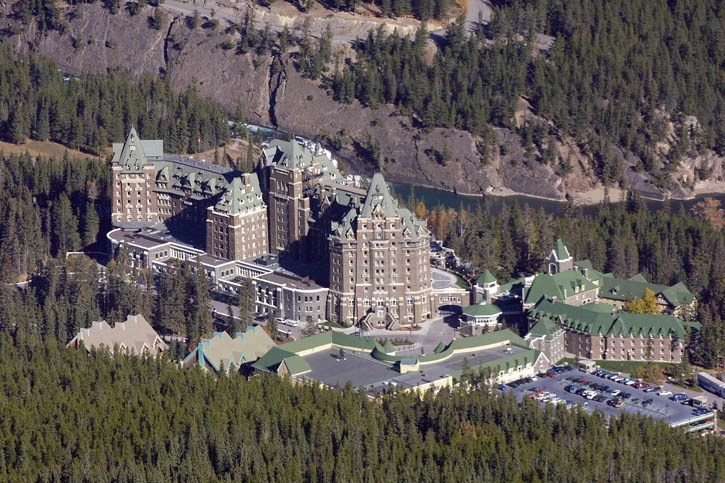BANFF – Banff’s overall property assessments have jumped 19 per cent to to more than $4 billion from $3.3 billion last year.
While residential properties increased in value by an average of 5.5 per cent to $2.26 million over last year, overall commercial properties saw an average increase of 41 per cent, and hotels increased by an average of 68 per cent.
Overall non-residential assessments – which include hotels, downtown retail, restaurants and offices and commercial buildings in the industrial area – were $1.76 billion for 2024 compared to $1.25 billion in 2023.
“Right now, the non-residential values are at the highest they have ever been and are above pre-COVID levels,” said Frank Watson, of Bow Valley Property Valuators, during a governance and finance committee meeting on Monday (Feb. 26).
Banff’s hotels saw the biggest jump this year, with an increase in assessed value by an average of 68 per cent in 2024 compared to a 33 per cent jump in 2023.
However, hotel assessments took a big hit in 2022 and 2021, decreasing 21 per cent and 20.5 per cent respectively, due to the COVID-19 pandemic.
The median hotel assessment last year was $13.5 million, increasing to $21.1 million in 2024. The average hotel assessment in 2023 was $23.3 million, rising to $38.96 million in 2024. The high-end Banff Springs Hotel skews the average amount, so the median is a better reflection of hotel values.
The redeveloped Otter/Canoe and Moxy hotels accounted for $35 million in growth.
Watson said hotel assessments are 40 per cent above 2019 values – the year before the COVID-19 pandemic hit.
He said last year hotels were back to 2019 values, and the year before that were at 2015-16 values.
“Hotels during COVID, they were very decimated by the lack of tourists,” said Watson, who has been the Town of Banff’s contracted assessor for the past 20 years.
“The hotel values have recovered probably faster than was anticipated. It was anticipated there wouldn’t be a recovery to the hotels until about 2025, so we’re two years ahead of anticipated recovery.”
Hotels are assessed on an income-based approach using a three-year weighted average.
Banff’s 30 hotels – 11 limited service, 16 full service, two hostels and one resort – contain about 3,600 rooms.
Ten owners own one hotel, three owners own two hotels, one owner owns three hotels, and one owner owns 11 hotels.
“The hotels are now accounting for 29 per cent of total non-residential,” said Watson.
Commercial properties in the downtown core – which are assessed based on the income approach, using the annual rental rates, deducting for vacancy, non-recoverable expenses, and an amount for reserves – increased in assessed value by an average of nine per cent in 2024.
That compares to a 20 per cent increase in 2023. Assessments stayed about the same in 2022 and were down five per cent in 2021.
“In 2023, there were two sales on Banff Avenue, and in 2022 there were two sales on Banff Avenue,” said Watson.
Non-residential properties in the industrial compound increased in assessed value by an average of four per cent for 2024 and 10 per cent in 2023, after remaining unchanged in 2022.
“The values follow similar trends to what is happening as Banff Avenue and Bear Street,” said Watson.
Residential properties are assessed using the same factors that a real estate agent uses to price a home. The value is the estimate of what a home would sell for on the open market on July 1 of the previous year, based on conditions at the end of the year.
The assessor considers qualities such as age, condition, size, location and any work done on the property up to Dec. 31, 2023.
“We have had some growth in the residential sector of about $12 million and that’s mainly The Aster and third floor of Cascade Mall, where they moved a lot of offices out and converted to residential apartments,” said Watson
Lauren Aebig, director of corporate services for the Town of Banff, said the property assessments were mailed out to residents and businesses on Feb. 20.
"These assessment values will be used to determine the amount of tax to be charged to each property owner,” she said.
The deadline to appeal assessments is April 22. Once the appeal deadline has passed, administration will bring back options for council consideration for the 2024 tax rate bylaw.




